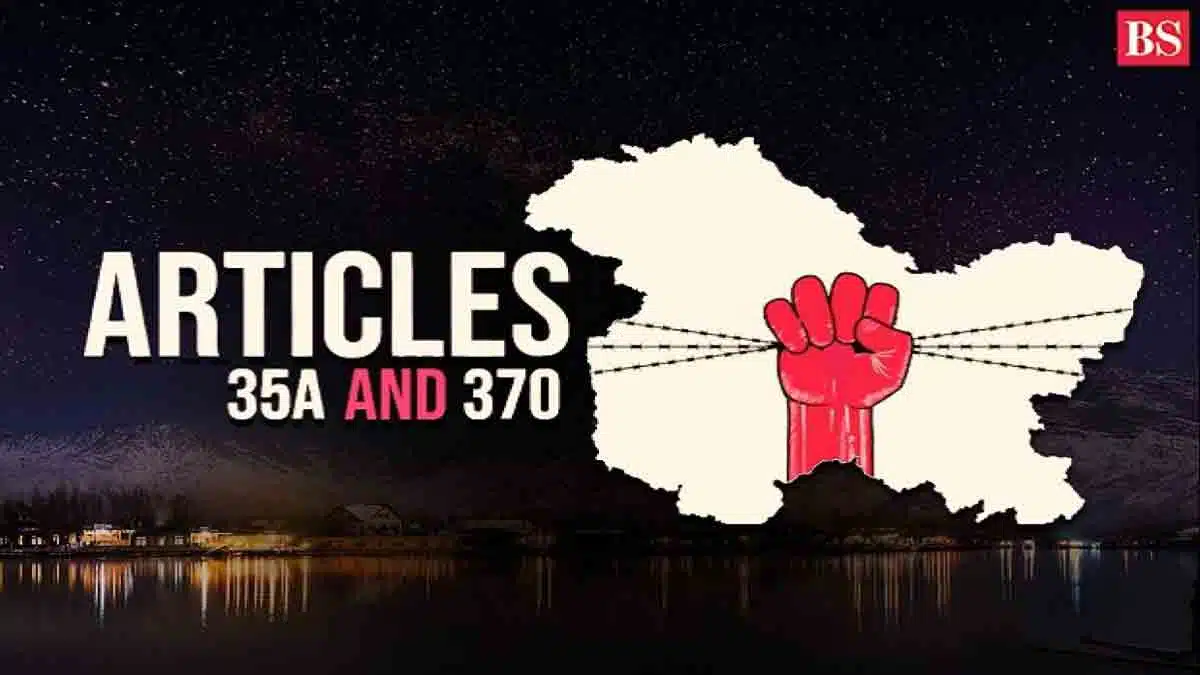Abrogation of Article 370 and 35A; A blatant violation of International law and UN resolutions
Three years have passed since the glaring violation of International law when the Indian establishment stripped articles 370 and 35A. The main agenda behind this violation for long has been the holy grail of colonization for Indian authorities. It is a continuation of ‘Akhand Bharat’, an ideology propounded by the Vinayak Damodar Savarkar. Every Indian ruler had played a villainous role in robing Kashmiris of whatever they were promised in the name of so-called internal autonomy, under article 370 of the Indian constitution.
The move played by the Indian government on 5th August 2019 is a classic example of Machiavellian machination. The Indian state wanted to disenfranchise, disempower and demoralize Kashmiris who have an enviable history of fighting against imperialistic designs of the Indian state that has always pursued a policy of oppression to erase Kashmir’s cultural, political, and national identity. After the grab of the new domicile law, New Delhi started its inclusive settler-colonialism drive. The aim is to meddle with the population matrix of the occupied territory and then go for a referendum to bury the Kashmir cause once and for all.
Since Indian establishment’s abrogation of articles 370 and 35A, they have deprived Kashmiris of the right to life. The whole process is against provisions of International law. After revoking articles 370 and 35A India stood against the UN resolutions 38, 47, 51, 91, and 122 that give Kashmir a special status and provide Kashmiris the right to self-determination through a plebiscite. Moreover, the Simla agreement was signed in 1972 between India and Pakistan over the issue of Kashmir. Any unilateral change in the status quo in IIOJ&K is a flagrant violation of that agreement. India, being a signatory to the International Covenant on Civil and Political Rights (ICCPR) derogating the right to life of Kashmiris is against article 6 of ICCPR. Article 6 states; “Even during the time of emergency,” “no one shall be arbitrarily deprived of his life.” Articles 4 and 7 of the ICCPR explicitly ban torture, even in times of national emergency or when the security of the state is threatened. Indian army, Special Task Force, Border Security Force, state-sponsored paramilitary groups, and village defense committees – the principal government forces operating in Jammu and Kashmir have systematically violated these fundamental norms of international human rights law. India’s state-sponsored militias under international law are bound to follow International Human Rights and Humanitarian Law.
Geneva convention’s article 3 makes it illegal for the member states to use torture on prisoners of war in non-international armed conflicts. The article states that; “violence to life and person, in particular murder of all kinds, cruel treatment, mutilation, and torture are prohibited from being used against those who did not take part in the conflict. Hence, people are protected against torture under the Geneva Convention. Revocation of article 370 was a step to pursue the so-called Jammu and Kashmir Reorganization Order 2020 to settle non-Kashmiris in IIOJ&K which is against the 4th Geneva Convention and International Law. The international community and institutions must step in to prevent the victimization of the Kashmiri people.






